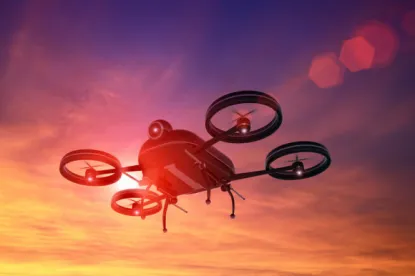In ancient European lore, vampires cannot enter a home without being invited in. Once invited, they are free to pass at will, feasting on the inhabitants.
Of course this legend had a practical purpose – to teach the young and naïve not to invite strangers who might do them harm into a house. This lesson is so much easier to understand to protect against real people with insidious motives than it is with insidious technology.
How many of us have invited Amazon into our homes? How deeply are they in yours right now? Do you simply order from your laptop or iPad and bring their packages to your door? Many have an Amazon device prominently placed in the home – or two or three – that listens all the time, and records some of the time, sending those recordings of personal wishes back to the great Amazon-controlled cloud. Others have actual Amazon-managed camera systems, through the Ring network, that could be using facial recognition technology and can allow local police to use the cameras.
So why am I picking on Amazon for this particular trend of invading all aspects of our homes and lives with surveillance equipment that would have been the fever dream of spies and police states not many years ago? Microsoft Xbox has been using facial recognition camera systems in people’s homes for years. Google has similar audio and video listening and capturing technology in residences across the world. Apple’s personal and smart-home devices, from wearables to security cameras to lightbulbs, collect far more data from a home than most people consider. Amazon is not the only big company leading this home privacy invasion.
But in the past week Amazon made an announcement of a product that illustrates how far the trend has progressed. In 2018, Amazon bought the home security company Ring. The company provides homeowners cameras at the doors and, if desired, throughout the rooms in a house. According to Wired, “Ring gives law enforcement officials access to a portal where they can ask camera owners to provide footage that may be relevant to criminal investigations in their neighborhood. Officials can also interact with residents on Ring’s community app, Neighbors. Police don’t need a warrant to send a request, and Ring users aren’t under any legal obligation to hand over their recordings in the program—though Ring hasn’t always reminded customers of that fact.”
Now, building on this home surveillance network, Amazon has added drones that patrol the rooms of a consumer’s home. At this year’s annual Amazon hardware event, alongside globe-shaped Echoes and a talking microwave, was the Ring Always Home Cam, about which a Ring executive writes, “We wanted to create one camera that could give users the flexibility of every viewpoint they want around the home, while delivering on our founding principles of privacy and security. That’s why I’m excited to announce the Ring Always Home Cam, a new way to look after the home and provide multiple viewpoints with one device. This autonomous indoor security camera flies your chosen, personalized paths so that you can easily check in on your home for peace of mind—like whether someone left a window open or forgot to turn the stove off.”
With a camera that is blocked when the drone is docked, the new Amazon drone can fly from room to room, recording burglars, frightening raccoons, entertaining your cat, or simply showing you on your smartphone security app how you left everything that morning. It could be an intrusive nanny-cam or a way to confirm you’re your children are doing their homework and not playing videogames. Imagine the drone in the hands of an emotionally abusive and controlling spouse, following a mate around the house to confirm all reported activities.
Like any tool, the home a-drone can be used for good or evil. As I have previously observed in this space, a hammer may be highly productive or destructive depending on the person who is using it. At the moment, Amazon has made drone video ineligible for the automatic request feature by police, but there is no reason that police couldn’t use the interior drone video with a warrant – or without a warrant if they ask nicely. Most people feel pressure to accommodate police requests and many do not know they have a Constitutional right to protect their own privacy from law enforcement.
Ring is known for its motion-activated camera systems and the drone fits in perfectly. If a disturbance is detected within the home, the drone is programmed to launch itself and fly to the sound of the incident. As stated in the recent Wired article on the topic, “It’s all part of Amazon’s larger strategy to have its singular products plug in and fly and rotate and simply appear where you need them to be, similar to the way the voice assistant Alexa started to show up, well, everywhere. Amazon’s been at this for a while now. The drone may be coming from inside the house, but it should also come as no surprise.” So it flies around your home like a bat, sucking in private information as it goes.
While some may see this security advance as creepy, Amazon claims that it was offered to solve a problem for some of its Ring customers. Many people did not want silent, permanent cameras in every room or angle of the house and some could not afford the most extensive camera systems. The camera drone allows one unit to check all over when needed.
And no one can be angry with Amazon, Google, Apple, Microsoft and others for providing products that are useful enough for people to want to cast privacy aside and allow third parties to record sound and video within their homes. Chipping away at our privacy so we have no “reasonable expectation” at all. Just like no one could blame the vampires for requesting an invitation to come inside a home. They are hungry, after all.




 />i
/>i

